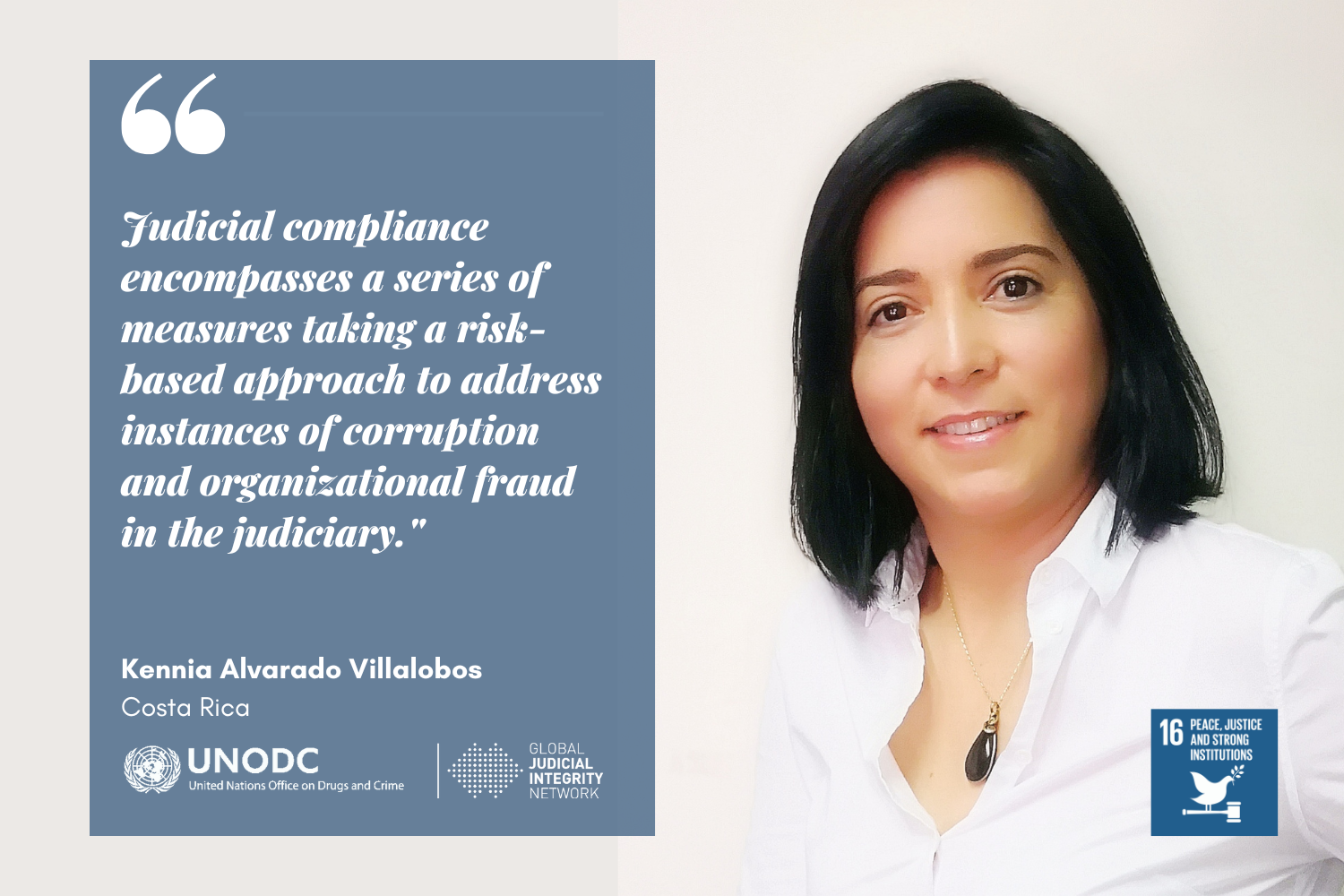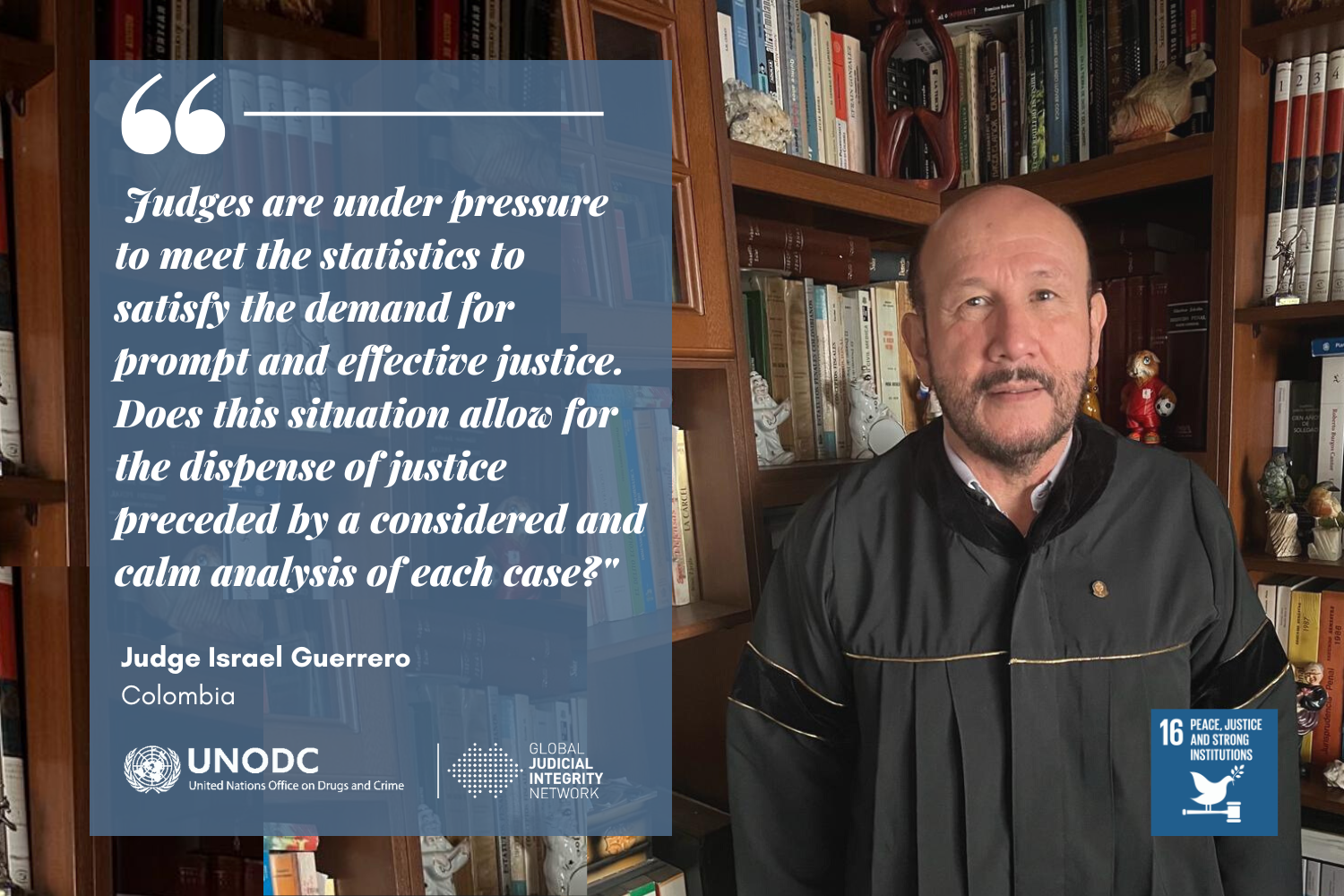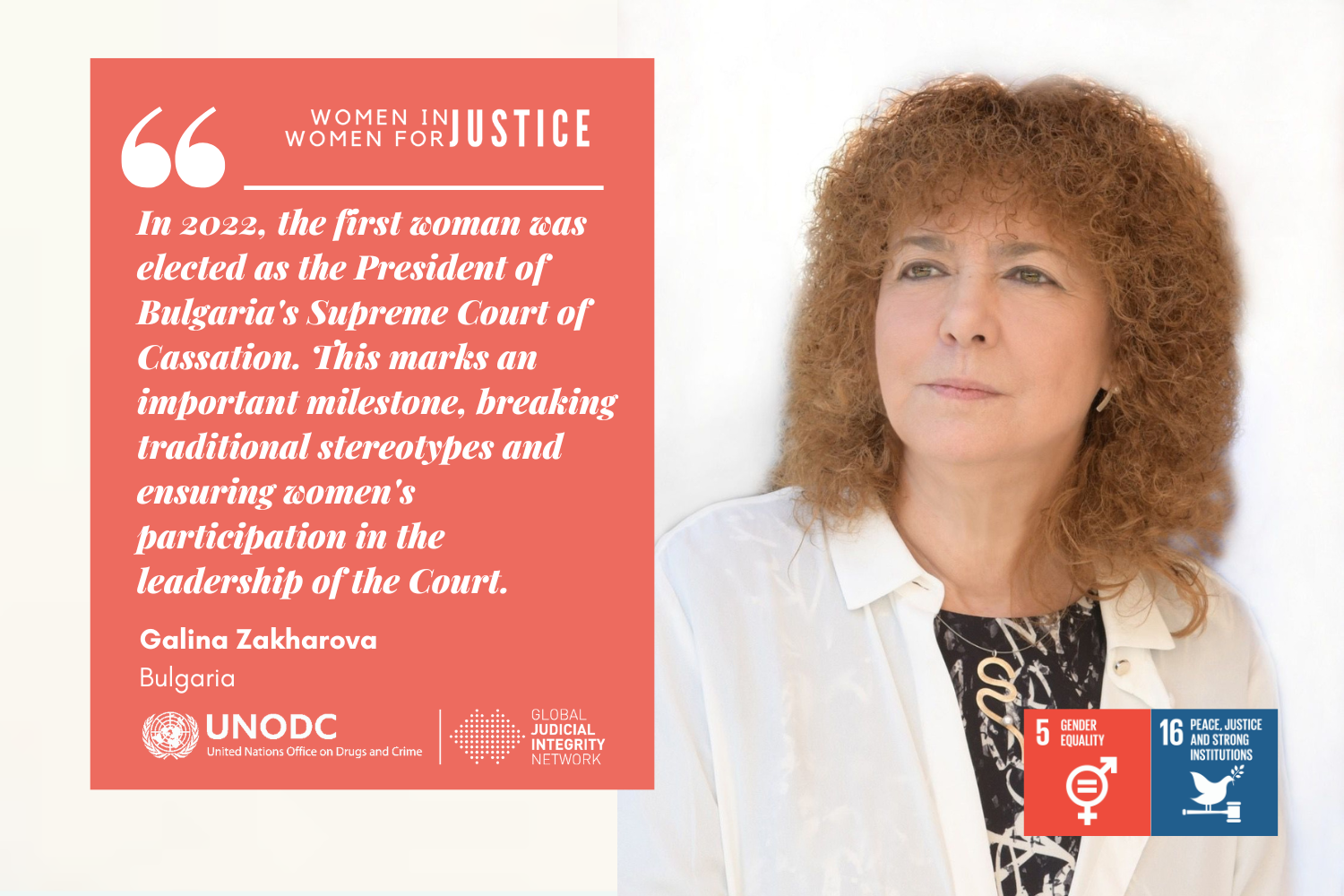At HLPF 2020, UNODC partners highlight key, multidimensional approaches being taken by Doha Declaration in promoting peace, justice and SDG 16
10 July 2020 – As the main United Nations platform on sustainable development, the High-Level Political Forum (HLPF) is an annual gathering of Member States designed to follow-up and review the 2030 Agenda for Sustainable Development. As in previous years, HLPF 2020 offers a platform to debate issues impacting the Sustainable Development Goals (SDGs), including successes and challenges; however, unlike former gatherings, this year has seen a largely virtual format, in response to COVID-19.
Held under the theme ‘Accelerated action and transformative pathways: realizing the decade of action and delivery for sustainable development’, this year’s forum touches on a range of important areas as the world takes stock of the impact of the pandemic. Among the discussions on how the international community can respond to COVID-19 and work towards achieving the SDGs during the Decade of Action was a virtual event hosted by El Salvador and UNODC. With the Global Programme for the Implementation of the Doha Declaration offering a prime example of a multidimensional approach to boosting SDG 16, the virtual event brought together a range of speakers, and audience participants, from across the world.
|
Opening this from their respective locations, H.E. Egriselda López, Ambassador and Permanent Representative of El Salvador to the United Nations in New York, and H.E. Sultan bin Salmeen Al-Mansouri, Ambassador and Permanent Representative of the State of Qatar to the United Nations in Vienna both noted that without sustainable development there can be neither peace nor rule of law, while both the rule of law and peace cannot be attained without sustainable development.
This notion was echoed by the event moderator, and Global Programme Coordinator, Marco Teixeira, who also highlighted that having been developed around the same time as the launch of the Sustainable Development Goals, “the Global Programme has demonstrated in step with the Global Goals that a multidimensional, interconnected and people-centred approach is key to delivering on SDG 16.”
Indeed, the Global Programme grew from the 2015 United Nations Crime Congress held in Doha, Qatar as an instrument to help countries achieve a positive and sustainable impact on crime prevention, criminal justice, corruption prevention, and the rule of law. Since the inception of the Global Programme, which is operational thanks to the generous support of the State of Qatar, it has promoted peaceful, corruption-free and inclusive societies for sustainable development in all corners of the world. Indeed, in its four years, the Global Programme’s events and projects have reached over 1.8 million people from 190+ countries, with direct capacity-building provided to more than 52,600 people, and direct technical assistance given to 72 countries. Importantly, the Global Programme continues to contribute not only to SDG 16, but several other Sustainable Development Goals through its various activities, tools and resources, including those on good health and wellbeing (3), quality education (4), gender equality (5), sustainable cities (11), and partnerships (17). These beneficiaries have been reached in a range of ways such as strengthening judicial integrity and preventing corruption in the justice system; fostering the rehabilitation and social integration of prisoners to provide a new chance in life; preventing youth crime through sports-based programmes and life skills training; and supporting the integration of crime prevention and the rule of law into all levels of education.
To highlight just a few of the ways the Global Programme is working around the world to boost the SDGs, speakers from Africa, Europe and Central/South America shared their insights.
 El Salvador’s Vice Minister of Education and Science and Technology, H.E. Ricardo Cardona, flagged the importance of shifting attitudes to counter crime and build peace, pointing towards the Global Programme’s work carried out under the Education for Justice initiative. “If we are to achieve SDG 16 it is necessary that we change our culture, that we change our view on how to educate. We need to be able to reach parents and teachers, especially as the earliest stages of childhood are when we teach values, influence their views and help build key life skills.”
El Salvador’s Vice Minister of Education and Science and Technology, H.E. Ricardo Cardona, flagged the importance of shifting attitudes to counter crime and build peace, pointing towards the Global Programme’s work carried out under the Education for Justice initiative. “If we are to achieve SDG 16 it is necessary that we change our culture, that we change our view on how to educate. We need to be able to reach parents and teachers, especially as the earliest stages of childhood are when we teach values, influence their views and help build key life skills.”
 Bringing in the angle of judicial integrity and the importance of a fair, non-corrupt judiciary, Hon. José Igreja Matos, Vice President of the International Association of Judges, highlighted UNODC’s work in this area. “As a Board Member of the Global Judicial Integrity Network I have seen first-hand how this is making a concrete difference on the ground”. He also pointed towards the Network’s founding approach, ‘By Judges, For Judges’, describing it “as a crucial vehicle for members of the judiciary to jointly discuss current challenges worldwide.”
Bringing in the angle of judicial integrity and the importance of a fair, non-corrupt judiciary, Hon. José Igreja Matos, Vice President of the International Association of Judges, highlighted UNODC’s work in this area. “As a Board Member of the Global Judicial Integrity Network I have seen first-hand how this is making a concrete difference on the ground”. He also pointed towards the Network’s founding approach, ‘By Judges, For Judges’, describing it “as a crucial vehicle for members of the judiciary to jointly discuss current challenges worldwide.”
 The use of sports to help youth turn away from drugs, crime and violence is another pillar of the Global Programme, and one which ties together several SDG’s, including 3 and 16. “Lack of opportunities is the main reason people fall into conflict with the law. What the Global Programme is trying to do is provide chances for youth to properly use their free time so that they can do something beneficial and constructive for themselves,” noted H.E. Víctor Rucoba Tello, Vice Minister for Public Safety, Ministry of Interior, Peru, who also shared his experiences with the Line Up Live Up initiative. “Last July, Line Up Live Up was launched in one of the most dangerous neighbourhoods in Peru. Now, it’s been extended to nine other areas and in some places, I have already seen great change with impressive results.”
The use of sports to help youth turn away from drugs, crime and violence is another pillar of the Global Programme, and one which ties together several SDG’s, including 3 and 16. “Lack of opportunities is the main reason people fall into conflict with the law. What the Global Programme is trying to do is provide chances for youth to properly use their free time so that they can do something beneficial and constructive for themselves,” noted H.E. Víctor Rucoba Tello, Vice Minister for Public Safety, Ministry of Interior, Peru, who also shared his experiences with the Line Up Live Up initiative. “Last July, Line Up Live Up was launched in one of the most dangerous neighbourhoods in Peru. Now, it’s been extended to nine other areas and in some places, I have already seen great change with impressive results.”
 The last speaker to share his country’s experiences with the Global Programme was Commissioner General Raphael Tulafono Hamunyela, Head of the Namibian Correctional Service. “Through Doha Declaration, there are currently five projects running in Namibia: hydroponics farming; sewing; basket weaving; soap making; and the production of greeting cards.” The Commissioner General also spoke of the wider benefit of the work being carried out, which goes beyond solely providing skills training for post-release rehabilitation, pointing towards the timely building of the soap production facility which is now providing much needed handwashing products to inmates and prison staff in the wake of COVID-19.
The last speaker to share his country’s experiences with the Global Programme was Commissioner General Raphael Tulafono Hamunyela, Head of the Namibian Correctional Service. “Through Doha Declaration, there are currently five projects running in Namibia: hydroponics farming; sewing; basket weaving; soap making; and the production of greeting cards.” The Commissioner General also spoke of the wider benefit of the work being carried out, which goes beyond solely providing skills training for post-release rehabilitation, pointing towards the timely building of the soap production facility which is now providing much needed handwashing products to inmates and prison staff in the wake of COVID-19.
Concluding the virtual event, John Brandolino, UNODC’s Director of Treaty Affairs, offered some salient thoughts: “UNODC remains committed to supporting Member States in their efforts to implement the 2030 Agenda, particularly the goals related to our mandates on drugs, crime prevention and criminal justice. Today’s event – Translating policy into action – had the objective of showcasing what this support looks like in practice. In line with the Decade of Action, the Doha Declaration Global Programme has demonstrated that a multidimensional, interconnected and people-centred approach is key to deliver on SDG 16. Much has been achieved, but there is more to be done, and UNODC stands ready to support Member States in their endeavours.”
Additional information:
Global Programme for the Implementation of the Doha Declaration
Education for Justice
Judicial Integrity
Prisoner Rehabilitation
Youth Crime Prevention through Sports








